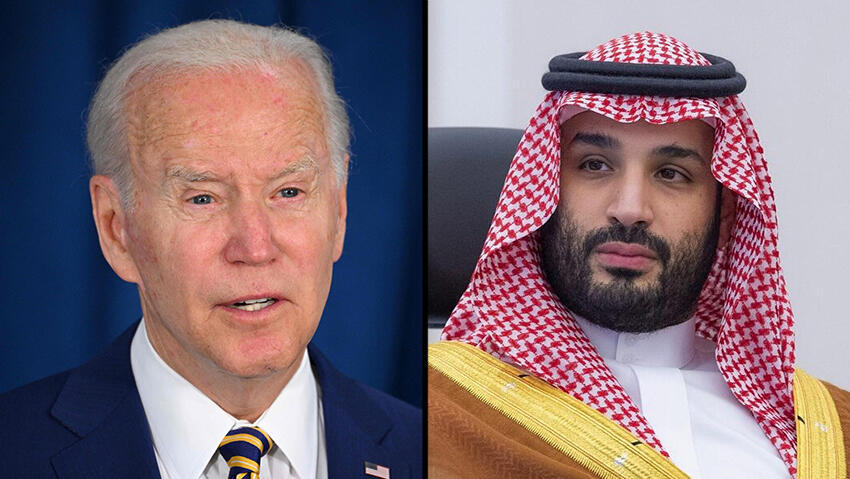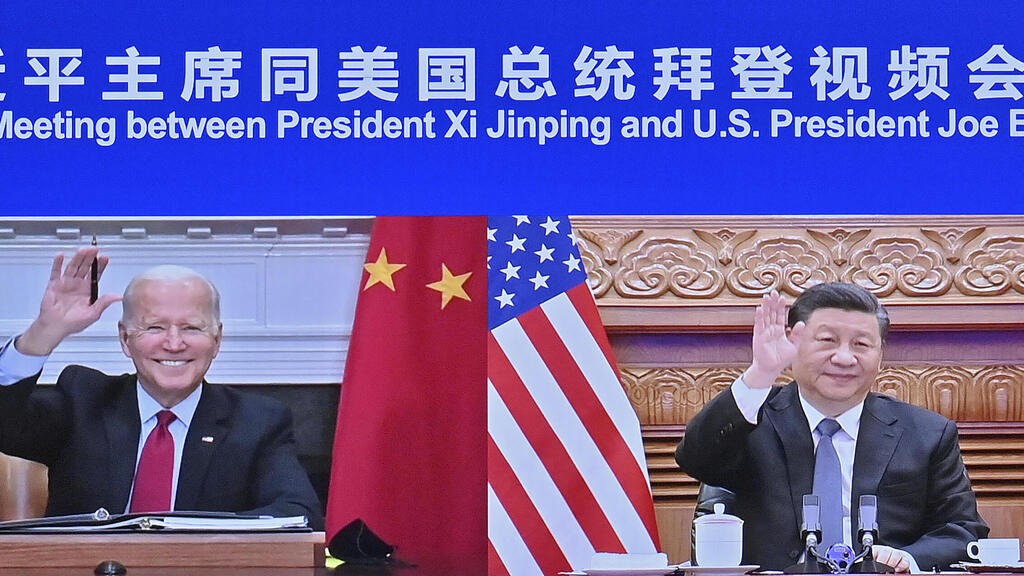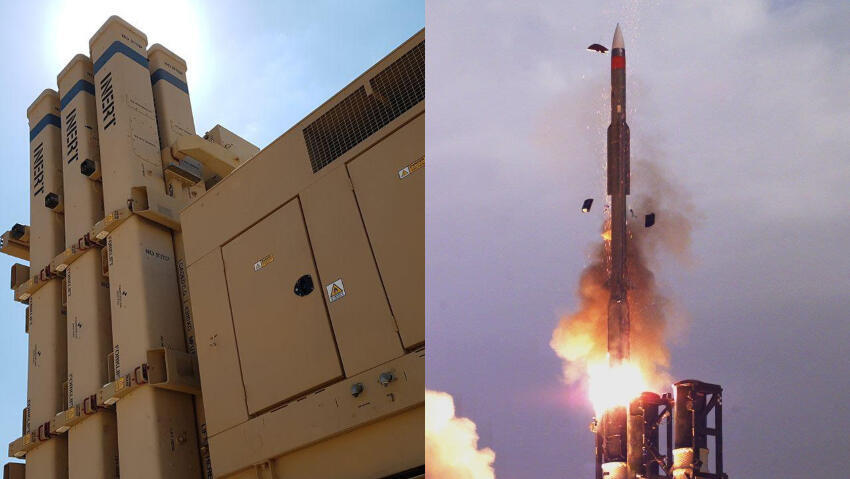Getting your Trinity Audio player ready...
U.S. President Joe Biden's Mideast trip will be considered a success if Saudi Arabia and other oil producers in the region agree to increase their oil and gas output for the starved global markets.
If he succeeds, the White House will be able to deliver Europe from its energy crisis, caused by the war in Ukraine. It will bring oil prices down and temper the U.S.'s surging inflation rate ahead of the November mid-term elections.
And no less important, it would serve as a clear indication that the United States is still a key actor in the region.
From Israel's perspective, that would be the best outcome and would contribute directly to Jerusalem's security and deterrence.
This would be a greater achievement than any other gift Biden could bring with him next week, including the promotion of a regional air defense alliance, further normalization steps with the Saudis or an agreed end to the protracted maritime border dispute with Lebanon.
Biden is not traveling here to appease Israel or the Palestinians. He is coming to the Middle East because this is home to much of the world's oil and gas production which has once again become of utmost strategic importance to the United States and the West.
This has been the outcome of the Russian invasion of Ukraine, China's posturing in the South China Sea as well as the Belt and Road projects whereby Beijing hopes to harness world economies to its interests.
Convincing Arab Gulf oil producers to ramp up production would be a show of support for Biden, who is facing both China and Russia in the global arena and is vital after Russia's position in the region took a hit by virtue of its less-than-impressive military exploits in Ukraine.
It would also help Biden's Democratic Party hold on to their hair-thin majority in Congress as the U.S. is trying to veer back to a democratic and liberal agenda after the Trump presidency.
A secondary goal the Biden administration hopes to secure on this trip is regional stability so that Washington won't have to be dragged into conflicts between its Mideast allies and Iran or between Israel and the Palestinians.
If just 80% of the trip's strategic goals are met, Israel too would benefit greatly.
But officials in the caretaker government and the security agencies are hoping for more.
Jerusalem hopes demonstrating close cooperation with the leader of the Western world would deter Iran and encourage more Sunni nations to join the Abraham Accords and further strengthen the regional air defense pact.
Such an agreement would be of great concern for Tehran and a leverage point for the U.S. in its negotiations on a return to the nuclear deal.
Biden would like the so-called coalition for change to remain in power after the elections this fall and his administration makes no secret about its opposition to the possibility of a government based on the far-right and religious parties under the leadership of Opposition Leader Benjamin Netanyahu.
In hosting the American president, Prime Minister Yair Lapid will gain legitimacy as a leader, an outcome the administration is certainly hoping for if only to appease the Progressive wing of the Democratic Party.
Israel will exhibit all the latest innovations in air defense, including its laser technology which could become operational within two years. The hosts will thank the United States for the billions of dollars in aid, earmarked for Israel's multi-layered air defenses and show that U.S. taxpayer dollars were not flushed down the drain.
Defense Minister Benny Gantz will argue that U.S. aid contributes to American security as much as it does to Israel. The advanced missile defense systems could be part of the United States' response to Russian and Chinese hypersonic missiles to which the Pentagon has yet to develop an adequate defense.
Biden will make every effort during his trip to prove to the Palestinians that, unlike his predecessor, he has not abandoned them.
He hopes to appease Palestinian President Mahmoud Abbas and his faction while Progressive Democrats wait to hear the president state his continued support for a two-state solution to the conflict and see the administration bestow generous financial aid on the PA.
Islamist Palestinian factions may try to disrupt the visit by carrying out terror attacks on the West Bank or even launching rockets into Israel from the Gaza Strip while the president is in the country. But since the visit will be brief, even a successful attack would likely not cause any disruption.
The IDF and security agencies have been conducting nearly nightly raids against Hamas and Islamic Jihad operatives in preparation for the visit and forces will remain on high alert.
U.S. envoy to the Lebanese-Israeli maritime border talks Amos Hochstein will join Biden on the Israeli leg of the tour. He will stay around after the president leaves to finalize an agreement acceptable to both Jerusalem and Beirut.
But such an agreement could prompt Hezbollah to take action like when the Iran-backed proxy launched drones at the Karish gas rig last week. In that case, Israel will only be able to respond after the visit.
When the president returns to Washington, negotiations with Iran on a return to the nuclear deal will resume.
The talks were moved from Vienna to Doha and indicate Iran is in no rush to reach an agreement with the West while American interests would be served by Iranian oil returning to the markets.
The U.S. has been turning a blind eye to Iranian sanctions breaches over the past 18 months, hoping that Tehran would recognize the American gesture and resume talks. But there is a real argument in the Iranian leadership over the need to agree to restrictions on uranium enrichment or submit to IAEA inspections if a deal is signed. Either way, the Iranians will return to the negotiation table from a position of power.
Israel will try to keep pressing the Biden administration to turn the screws on Iran and refrain from signing a bad deal.
Israeli officials will tell the visiting president that Iran only responds to actual threats.




